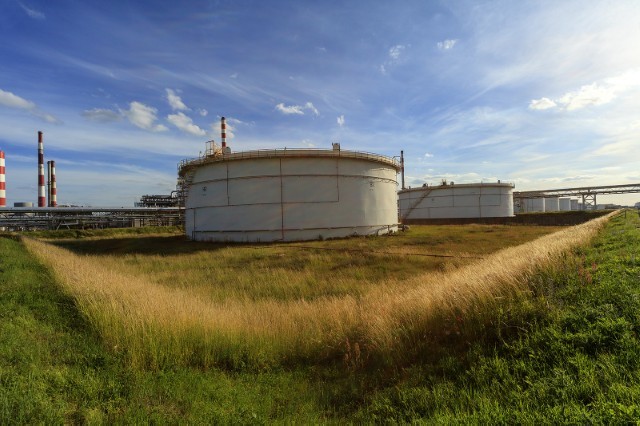CO-BIO
One of the strategic goals of the European Union's energy policy is to increase the use of renewable energy resources, including biofuels

 Project title
Project title
Development of a technology for the co-hydrogenation of diesel fractions with vegetable oils as a potential source of biocomponents for diesel fuel - CO-BIO Project
 Name of Beneficiary/Beneficiaries
Name of Beneficiary/Beneficiaries
PKN ORLEN S.A. (joint-stock company)
 Name of programme
Name of programme
Intelligent Development Operational Programme
 Competition
Competition
INNOCHEM sectorial programme
 Project value
Project value
PLN 8 711 127.87
 Funding value
Funding value
PLN 3 659 486.00
 Project delivery period
Project delivery period
from 29 November 2017 till 12 September 2020
View the results of our work

What problem is addressed by the project?
One of the strategic goals of the European Union's energy policy is to increase the use of renewable energy resources, including biofuels. EU directives, such as RED II (Renewable Energy Directive on the promotion of the use of energy from renewable resources) impose on the Member States the requirement to ensure a minimum share of renewable energy resources in transport. In order to implement these guidelines, the so-called National Index Target (Narodowy Cel Wskaźnikowy - NCW) imposing on the fuel producers the obligation to ensure "a minimum share of biocomponents and other renewable fuels used in all types of transport, in the total amount of liquid fuels and liquid biofuels used during the calendar year in road and rail transport, calculated according to the heating value". This index continues to increase from 7.50% in 2018, 8.7 in 2021, to planned 9.1% in 2024. The CO-BIO project tackled the issue of these growing needs. A technology for simultaneous processing of crude oil fraction with vegetable oils using the existing diesel hydrodesulphurization installations (the so-called co-hydrogenation process) was developed. In this project, PKN ORLEN, in cooperation with the Industrial Chemistry Research Institute (currently Łukasiewicz Research Network), conducted, a series of laboratory tests aimed at selecting raw materials and determining optimal process conditions. Based on the results of the conducted research, we planned a demonstration trial of the process under development on a full-scale production installation at our Production Plant in Płock, which we carried oud in 2018. We composed and tested diesel blends containing a biocomponent from the developed process, finally obtaining a finished commercial product that meets the normative quality requirements.
Who uses the project results?
The results of the project will enable placing on the market diesel oil containing an additional biocomponent, and will support PKN ORLEN, and indirectly our country, in meeting the obligation to meet the National Index Target and to comply with the EU policy in the field of the use of renewable energy resources in transport.
What was the greatest challenge during project implementation?
It was the first research and development project of such a wide scope, starting from laboratory research and reaching an industrial scale through carrying out a demonstration trial on a full-scale refinery installation. Its implementation required the involvement and cooperation of many different specialists, both with the ORLEN Group and the world of science. A great challenge was to coordinate the work in accordance with the assumed project schedule as well as the work schedule of the plant, whose individual installations constitute a "system of connected vessels". Joint research and development work leading to the goal was performed by scientists, R&D workers, technologists, process engineers, masters, machinery experts, specialists in logistics, composition, fuel standardization and many, many others.